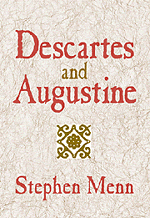2 - Descartes' project for a new philosophy
Published online by Cambridge University Press: 04 August 2010
Summary
The expectation of a new philosophy
To understand what Descartes hoped to accomplish through his philosophical work, we should first orient ourselves against the intellectual background of this work. It is not enough to know the condition in which Descartes hoped to leave philosophy; we must also understand the condition in which he found it, if we are to appreciate what features he wished to alter, and what expectations he hoped to fulfill. In what follows I will try to indicate this background condition, briefly and in the broadest of strokes.
Descartes is widely regarded, alone or with such associates as Bacon or Hobbes, as the founder of modern philosophy. Already in Descartes' lifetime, people were speaking of the “new philosophy,” meaning either Descartes' philosophy or more generally the approach to nature shared by Descartes with other “moderns.” Now, to speak of a “new” or “modern” philosophy beginning in the early to mid seventeenth century implies a contrast with a previous situation, in which there was only an “old” or “ancient” philosophy. Thus David Hume, writing one hundred years after Descartes, draws sceptical conclusions from a contrast of two opposing philosophies, the “ancient” and the “modern.” Hume does not use the word “medieval,” which is a fairly recent invention; but neither does he have a simple dichotomy of ancient and modern times, so that the period before (say) 1500 or 1600 would all be “ancient.”
- Type
- Chapter
- Information
- Descartes and Augustine , pp. 18 - 70Publisher: Cambridge University PressPrint publication year: 1998



